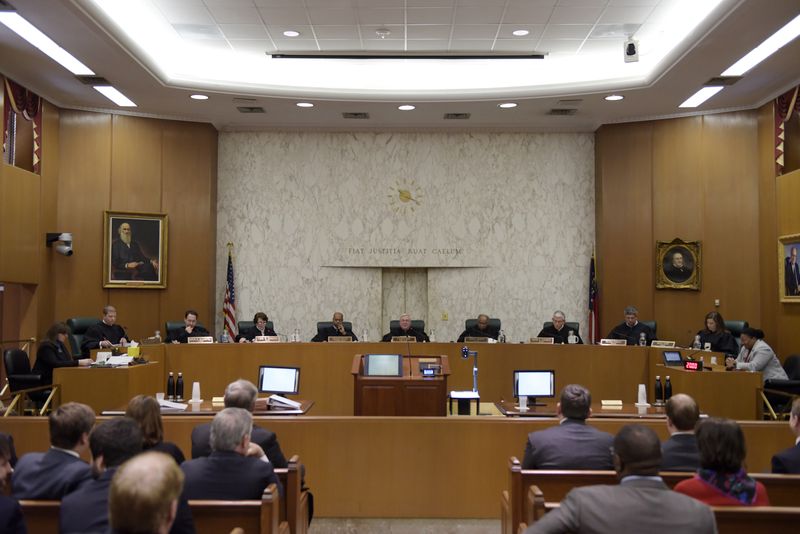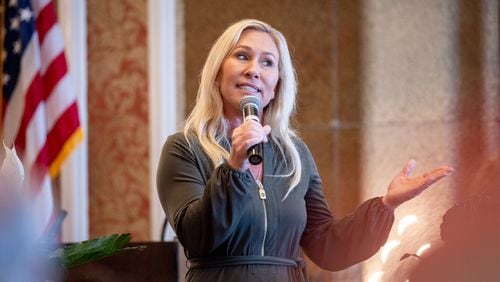A public reprimand may not be sufficient punishment for an Atlanta bankruptcy lawyer who sent threatening emails to his ex-wife’s divorce attorney, the Georgia Supreme court has decided.
In an opinion issued this week, the high court rejected a recommendation for a reprimand
Credit: Bill Rankin
Credit: Bill Rankin
by both the attorney, Jack Spain, and the State Bar of Georgia, which investigates complaints of lawyer misconduct.
The unusual case stems from Spain’s 2015 divorce case, which led to criminal charges being filed against Spain in Fayette County because his ex-wife’s lawyer practices there. Spain pleaded nolo contendre – meaning he did not contest the charges – to a misdemeanor count of stalking and a misdemeanor count of harassing communications. He was sentenced probation, according to court records.
When contacted Thursday, Spain declined to comment.
Catherine Sanderson, his ex-wife’s divorce attorney, said she initially reported the emails to authorities to get Spain to stop sending them. Only when a sheriff’s investigator arrived and looked at the emails, did authorities take out a warrant on Spain, she said.
“They were definitely beyond the pale,” Sanderson said. “I’ve been practicing law a long time. I’ve never had anybody behave the way he behaved.”
When Spain sent the emails, he was acting as his own attorney in his divorce case, the Supreme Court opinion said. Spain later admitted his emails included “inappropriate threatening language, intimidation and personal attacks directed to opposing counsel, including personal remarks about counsel and members of her family,” the opinion said.
The opinion did not disclose the actual content of Spain’s emails.
Spain had offered in mitigation that he has no prior disciplinary record and at the time of the misconduct was suffering from personal and emotional problems related to his marriage. He later hired an attorney to represent him in the divorce and sought professional help for his problems, the opinion said.
The court acknowledged that Spain “is deeply remorseful and recognizes that his conduct was contrary to his professional obligations and longstanding personal values, and he wishes he could reverse his actions.”
The State Bar of Georgia said an aggravating factor in the case was Spain’s “substantial experience in the practice of law,” the opinion said. The bar said a reprimand was the appropriate discipline, and it found no state Supreme Court precedent that provided “meaningful guidance in this unique set of circumstances,” the opinion said.
In rejecting the recommendations, the Supreme Court’s unanimous opinion cited a 2016 case in which a lawyer was given an 18-month suspension from his law practice for a conviction of misdemeanor fraud.
Neither Spain nor the State Bar identified a prior case in which the high court imposed only a reprimand for “such a serious violation, even when the attorney presented significant mitigating (factors),” the opinion said.
About the Author







